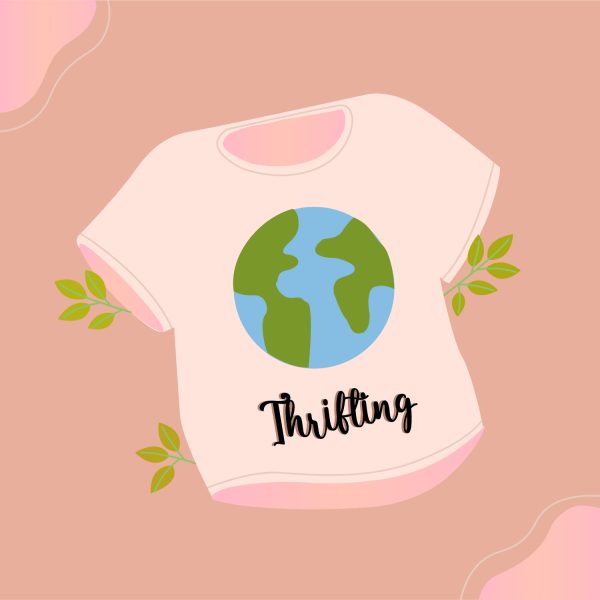Taylor Swift Has Exposed Ticketmaster’s (and America’s) Monopoly Problem
January 30, 2023
Superstars standing confidently on the center stage. A thousand voices singing out as one. Bright pillars of colorful stage lights, blazing fireworks, a twinkling sea of cell phone flashlights. Across the world, concerts are a huge part of our culture. Freshman Camden Johnson shared, “I like concerts because you get to listen to good music live with a bunch of people who love the same music you do.” Concerts are in our conversations, on our social media, and on our bucket lists. We dream of that once-in-a-lifetime experience where we get to see and hear our favorite artist face-to-face.
Three months ago, this dream became a possibility for millions of Taylor Swift fans across the country. On Nov. 1, nine days after the release of her tenth album, Midnights, the acclaimed singer-songwriter announced her first tour in five years, the Eras Tour. Swift described it as “a journey through all [her] musical eras,” where she will perform in twenty cities between March and August of 2023. When Ticketmaster, Swift’s ticketing partner for primary market sales, opened the Eras Tour presale for a couple VerifiedFans, 14 million people entered Ticketmaster’s website and the entire system crashed. Many hopeful fans left empty handed, sometimes after waiting for hours and finally getting to the front of the line just when it was too late. Junior Emily Fitzgerald says, “Ticketmaster is not the best. It has so many glitches and crashes way too much. When I was trying to buy Taylor Swift tickets, the whole website shut down and I did not get them. Very disappointing!” The presale was a complete disaster, and once it was all over, Ticketmaster had sold too many tickets to hold a general sale and cancelled it entirely. Furious fans began to attack Ticketmaster on social media, and even began to accuse other fans of stealing their rightful place at a concert. Distressed that they had not been given a fair chance at their concert experience of a lifetime, many felt that the ticket sale should be redone to give everyone a better chance. Fans of other artists also spoke out, claiming that they too had negative experiences with Ticketmaster’s customer service and that it was about time the company was held accountable for its faults.
Even the Department of Justice (DOJ) agreed. According to the New York Times, “Members of the antitrust division’s staff at the Justice Department have in recent months contacted music venues and players in the ticket market, asking about [Ticketmaster’s parent company,] Live Nation’s practices and the wider dynamics of the industry, … looking at whether the company maintains a monopoly over the industry.”
So, what exactly is a monopoly, and why does it warrant an investigation from the US Department of Justice? The Corporate Finance Institute defines a monopoly as “a market with a single seller (called the monopolist) but with many buyers. In a perfectly competitive market, which comprises of a large number of both sellers and buyers, no single buyer or seller can influence the price of a commodity.” This means that in an ideal economy, supply and demand naturally determine the pricing of products and find a fair price that benefits the buyer and the seller. But a monopoly is an imbalance in this system, which gives sellers more power over an industry. The DOJ antitrust division’s job is to keep this system balanced and prevent large corporations from takin advantage monetarily over their customers. Live Nation and Ticketmaster are an example of this because they have contracts with many artists and venues all over the world that give them exclusive access to resources and keep other ticketing businesses from competing. The ticketing industry monopoly can cause many problems for not only fans, but for artists as well. Vox wrote, “It ends up leading to higher prices for us and less negotiating room for artists or independent venues, or the workers that end up dealing with Ticketmaster…. [As an artist,] you cannot do a tour without coming into contact with Ticketmaster at some point, whether it is the management and promotion, the ticketing service, or the venue — your money will be going into Ticketmaster’s pocket.” Even though Ticketmaster’s business does not serve its buyers or partners well, since it is a primary supplier of concert tickets, people will continue to buy from them despite these flaws.
Live Nation’s monopoly problem is also why fans experience so much dynamic pricing when buying from Ticketmaster, another thing that frustrated Taylor Swift fans. Dynamic pricing is when extra fees are added to a product right before purchasing, so that the final price is much higher than initially advertised to the buyer. Although increasing prices is important to keeping up with supply and demand, these “surprise” fees are ways monopoly business can manipulate prices to their advantage. Senior and AP Economics student Aubrey Cook says, “Dynamic pricing is better for business, but I feel like it is very unreliable for customers.”
The reason the DOJ antitrust division watches monopolies is because of how they can impact the entire economy. It shifts the balance of power between buyers and sellers, but it also affects wages as well. The Institute for Local Self-Reliance says that “a major reason that wages have not risen in recent decades is that industries are now dominated by a handful of corporations that have outsized power to set wages and face little competition for labor.”
Many Americans are aware of these large monopolistic businesses that are on the rise, and the impact that they have on the way we shop and the way we live our lives. Sophomore Wesley Yuan shared some examples, saying, “I know Amazon is really big in shipping, and Microsoft and Google are big in the tech industry.” So the question is, where is the line? When big businesses have power over such significant aspects of our lives, like concerts, technology, and online shopping, when do we decide that their power is too much? On Tuesday, Jan. 24, a Senate hearing started in order to determine if Ticketmaster and Live Nation’s control over the music industry is too powerful to keep a capitalist economy balanced. The Senate will question the CEO and CFO of Live Nation, as well as several artists who have experienced issues with Live Nation. Depending on the direction the hearing goes, it may be a monumental decision, not only in the music industry, but for businesses all over the country.





